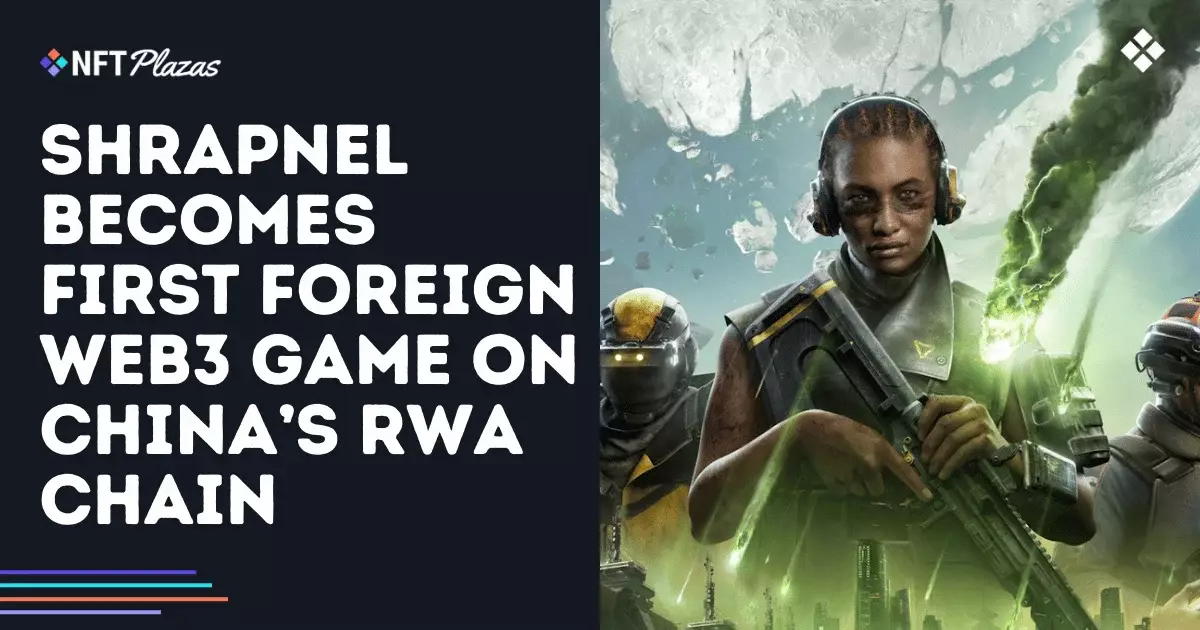The entry of the US-developed web3 video game Shrapnel into the Chinese gaming market represents a watershed moment for the intersection of technology and regulation. For years, foreign gaming companies have faced an uphill battle in China, a market characterized by stringent regulatory policies and a protective stance over its domestic industry. However, Shrapnel’s recent approval to operate on China’s government-sanctioned RWA Copyright Chain offers a glimmer of hope and potential growth, ushering in what could be a transformative phase for blockchain-based gaming.
Realizing the Potential of a $40 Billion Market
China’s gaming industry boasts a staggering worth of over $40 billion, making it one of the largest markets globally. By securing this partnership, Shrapnel not only gains access to a lucrative audience but also sets a precedent for foreign web3 entities aiming to enter the Chinese market. This development signifies that compliance does not merely mean capitulation; rather, it can lead to fruitful partnerships that benefit both parties in a manner balanced by mutual respect for regulations.
The game is poised to launch a localized version tailored specifically for the Chinese audience. This tailored approach is not just about translation; it’s about understanding the cultural nuances and preferences that dictate gaming choices in China. Adopting a localised game launcher and establishing partnerships with local firms like Lingjing Game Labs emphasizes Shrapnel’s commitment to integration rather than imposition.
Redefining Digital Ownership and Property Rights
Another significant milestone is how Shrapnel will manage in-game assets within China’s legal framework. For the first time, tokenized in-game items—be it skins, equipment, or other digital assets—will be classified as recognized digital property. This change not only empowers gamers by granting them ownership of their virtual possessions but also aligns with China’s focus on intellectual property rights—a critical factor in an age where digital ownership is often fraught with ambiguity and challenges.
This structured marketplace where players can buy, sell, and trade assets under regulatory guidelines is revolutionary. It offers a controlled yet versatile environment where digital goods can flourish without compromising state policies. For a country that has historically shied away from decentralized aspects of blockchain technology, this acknowledgment could facilitate further innovations in regulated environments.
China’s Evolving Stance on Blockchain Technology
While Shrapnel’s approval does not hint at an overarching shift in China’s stringent policies, it showcases a notable evolution in the governmental narrative surrounding blockchain. Rather than a blanket prohibition, the developing framework allows for compliant foreign collaboration on digital platforms that align with national objectives.
This evolution poses a challenge and an opportunity for other foreign companies. As different sectors within technology eye the Chinese market, Shrapnel creates a roadmap for navigating the complexities of compliance. It is vital that foreign entities not only refill their coffers but also respect and adapt to the local regulatory frameworks. Shrapnel’s unique model could serve as a template for future interactions between foreign gaming companies and Chinese regulators, highlighting that adaptability is as essential as ambition in today’s digital economy.

